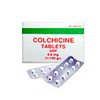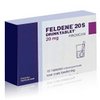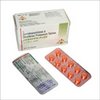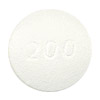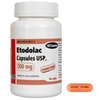INDICATIONS
Colchicine is specifically indicated for treatment and relief of pain in attacks of acute gouty arthritis. It is also recommended for regular use between attacks as a prophylactic measure, and is often effective in aborting an attack when taken at the first sign of articular discomfort. Colchicine is a beta-tubulin interactor. It may affect certain proteins in the body, which may relieve gout symptoms.
INSTRUCTIONS
Take Colchicine as directed by your doctor!
- Take Colchicine by mouth with or without food.
- Do not eat grapefruit or drink grapefruit juice while you are using Colchicine .
- Continue to use Colchicine even if you feel well. Do not miss any dose.
- If you miss a dose of Colchicine , take it as soon as possible. If it is almost time for your next dose, skip the missed dose and go back to your regular dosing schedule. Do not take 2 doses at once.
Ask your health care provider any questions you may have about how to use Colchicine.
STORAGE
Store Colchicine at 77 degrees F (25 degrees C). Store away from heat, moisture, and light. Brief storage at temperatures between 59 and 86 degrees F (15 and 30 degrees C) is permitted. Do not store in the bathroom. Keep Colchicine out of the reach of children.

